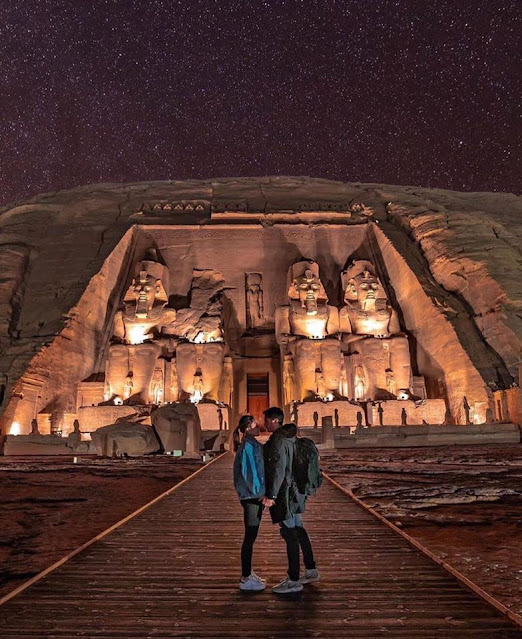In a world driven by innovation, competition, and ever-evolving ideologies, there remains one force that transcends all others—love. It has no borders, knows no limits, and touches every life, regardless of status, culture, or circumstance. From the smallest act of kindness to the most heroic acts of sacrifice, love is the power that fuels humanity’s greatest expressions of courage, compassion, and connection. Far beyond romantic sentiments, love is the core of everything that sustains and elevates life. It is the greatest power on Earth—not only because of what it feels like, but because of what it makes possible.
This article explores the multidimensional power of love: emotionally, psychologically, socially, and spiritually. It examines how love influences individuals, shapes relationships, and holds the potential to transform our world.1. Defining Love Beyond Romance
When most people think of love, they think of romance. The butterflies, the passion, the intimacy. While romantic love is deeply meaningful, it is only one expression of love’s immense power.
Psychologist Erich Fromm, in his book The Art of Loving, argues that love is not merely a feeling, but a decision, a commitment, and a practice. He describes love in several forms: brotherly love (for humanity), motherly love (unconditional care), self-love (acceptance and self-respect), and romantic love (desire and union). Each form of love is a pillar of our humanity.
Love, in its most powerful state, is inclusive. It is the force that connects the self with others, the personal with the collective, and the present with the eternal.
2. Love as the Source of Emotional Strength
Love changes the way we experience life. Emotionally, it provides both comfort and resilience. When people feel truly loved—by a parent, a partner, a friend, or even themselves—they are more likely to develop emotional stability and confidence.
Security and Belonging
From early childhood, love is what creates a sense of safety. Children who grow up in loving environments are more likely to develop secure attachments and a strong sense of self-worth. The need to belong is a fundamental human drive, and love fulfills that need in its purest form.
Resilience in Hardship
Love doesn’t shield us from pain, but it gives us the strength to endure it. People often say they were able to survive grief, illness, or failure because someone loved them through it. In times of adversity, the presence of love offers emotional shelter and hope.
3. Love in Relationships: A Transformative Bond
Human relationships are the most tangible expression of love’s power. Whether in friendships, families, or partnerships, love fosters empathy, connection, and shared growth.
The Mirror of Love
When we love and are loved in return, we come to see ourselves more clearly. A supportive partner or friend reflects back our worth, reminds us of our potential, and accepts us despite our flaws. Through this mutual recognition, love becomes a mirror and a motivator for self-improvement.
Commitment and Growth
In long-term relationships, love is not just about feeling good—it’s about commitment, sacrifice, and mutual evolution. It pushes us to become more patient, understanding, and generous. Conflict becomes a catalyst for communication. Differences become opportunities to grow.
True love is a journey, not a destination. It demands attention, care, and renewal—but its rewards are immeasurable.
4. Love’s Impact on the Brain and Body
Love’s power is not only spiritual and emotional—it’s physical and biological. Numerous studies in neuroscience and psychology have revealed the ways love improves human health and longevity.
The Chemical Cocktail of Love
Love activates areas of the brain associated with pleasure, motivation, and reward. It stimulates the release of:
-
Dopamine: Produces feelings of pleasure and motivation.
-
Oxytocin: Enhances bonding, especially in romantic and parental love.
-
Serotonin: Regulates mood and emotional balance.
-
Endorphins: Reduce pain and promote happiness.
These chemicals explain why people in love often experience elevated moods, lower stress levels, and greater energy. Love literally alters our brain chemistry to support well-being.
Health Benefits of Loving Relationships
People in loving, stable relationships tend to live longer, suffer fewer health issues, and recover faster from illness. Love improves immune function, lowers blood pressure, and reduces the risk of depression. Human connection is not a luxury—it’s a biological necessity.
5. Love’s Role in Social Harmony
Beyond individuals and couples, love is the glue that holds societies together. It fosters cooperation, justice, and collective well-being. In communities where love—expressed as compassion, empathy, and mutual respect—is cultivated, people thrive.
Acts of Kindness Multiply
One act of love often inspires another. Whether it’s helping a neighbor, volunteering, or standing up for someone in need, love in action is contagious. It creates a ripple effect that can uplift entire communities.
Bridges Across Divides
In an increasingly polarized world, love has the power to bridge divides. It reminds us of our shared humanity. When we listen with love, we break down walls of misunderstanding. When we lead with empathy, we begin to see even our adversaries as people worthy of dignity.
6. Love in History and Movements
Many of history’s most powerful movements were built not on anger, but on love. Leaders like Martin Luther King Jr., Mahatma Gandhi, and Mother Teresa acted from a place of deep compassion and belief in love as a moral force.
Love as Nonviolence
Gandhi’s philosophy of Ahimsa (nonviolence) was rooted in love—not weakness. He believed that true strength came from refusing to hate, even under oppression. Similarly, King’s vision of a “Beloved Community” relied on love to transform enemies into allies.
These leaders understood what many forget: love is not passive. It is fierce, brave, and capable of changing history.
7. The Power of Self-Love
No discussion of love’s power is complete without self-love. Often misunderstood as selfishness, self-love is in fact the foundation for all other forms of love. It is the inner fuel that allows us to love others authentically.
Accepting Ourselves Fully
Self-love means embracing our strengths and imperfections. It is the decision to stop seeking worth from external validation and to recognize it within ourselves. This kind of love liberates us from shame, insecurity, and comparison.
Setting Boundaries and Living Authentically
When we love ourselves, we learn to set healthy boundaries, say no when needed, and pursue what genuinely fulfills us. We stop trying to fit into molds and start living in alignment with our true values. The result is a life of integrity and inner peace.
8. Love and Spirituality
Love is the core of many spiritual and religious teachings. It is described as divine, eternal, and transformative.
Love as Divine Energy
In Christianity, God is described as love. In Buddhism, compassion (karuna) and loving-kindness (metta) are central to enlightenment. In Islam, one of the 99 names of Allah is Al-Wadud—“The Most Loving.”
Spiritual love goes beyond emotion—it is a way of being. It seeks not only to feel love but to be love in the world.
Transcendence Through Love
Many people describe love as the closest thing to transcendence. It lifts us out of selfishness and connects us to something greater. Whether in a parent’s love for their child, a partner’s unwavering support, or a stranger’s kindness, love is a glimpse of the divine.
9. Choosing Love in a Fearful World
Fear and love are often seen as opposites. Where fear contracts and divides, love expands and unites. In a world facing uncertainty, conflict, and division, choosing love is an act of rebellion—and of hope.
Love asks us to be vulnerable in a world that rewards detachment. It calls us to care deeply in a culture that prizes independence. And yet, love remains the most potent antidote to despair.
When we choose love—every day, in small ways—we participate in healing not just ourselves, but the world around us.
Conclusion: Let Love Be the Legacy
Love is not always easy. It can hurt, stretch, and challenge us. But it also heals, builds, and redeems. More than a feeling, love is a practice. More than a desire, it is a choice. And more than a force, it is a way of life.
In the end, our greatest achievements, our deepest joys, and our most profound memories are all rooted in love. What we give, what we share, and how we make others feel—that is what endures.
Love is the greatest power on Earth. May we learn it, live it, and let it shape the world we leave behind.
.jpg)
.jpg)
.jpg)
.jpg)
.jpg)
.jpg)
.jpg)
.jpg)
.jpg)
.jpg)
.jpg)
.jpg)
.jpg)
.jpg)
.jpg)
.jpg)
.jpg)
.jpg)
.jpg)
.jpg)
.jpg)
.jpg)
.jpg)
.jpg)
.jpg)
.jpg)
.jpg)

.jpg)
.png)
.png)
.png)
.jpg)
0 comments: